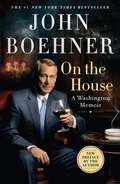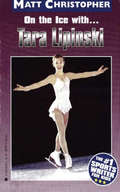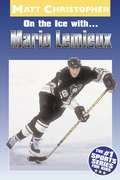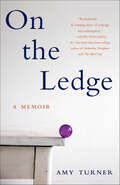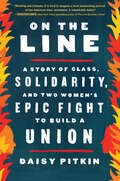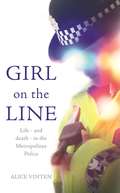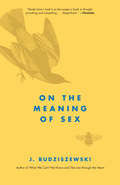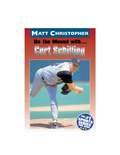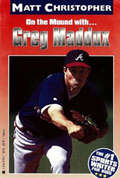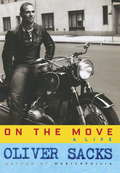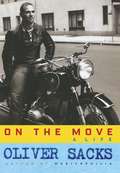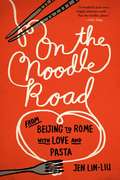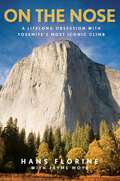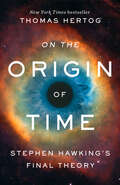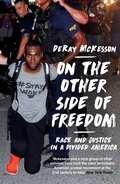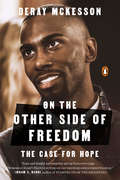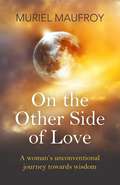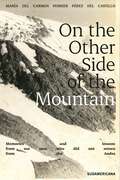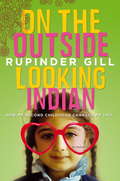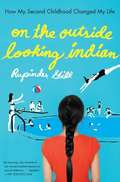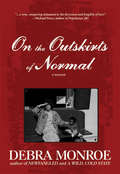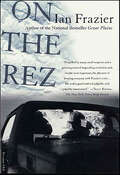- Table View
- List View
On the House: A Washington Memoir
by John Boehner<P><P>Former Speaker of the House John Boehner shares colorful tales from the halls of power, the smoke-filled rooms around the halls of power, and his fabled tour bus. <P>John Boehner is the last of a breed. At a time when the arbiters of American culture were obsessing over organic kale, cold-pressed juice, and SoulCycle, the man who stood second in line to the presidency was unapologetically smoking Camels, quaffing a glass of red, and hitting the golf course whenever he could. <P>There could hardly have been a more diametrically opposed figure to represent the opposition party in President Barack Obama's Washington. But when Boehner announced his resignation, President Obama called to tell the outgoing Speaker that he'd miss him. "Mr. President," Boehner replied, "yes you will." He thought of himself as a "regular guy with a big job," and he enjoyed it. <P>In addition to his own stories of life in the swamp city and of his comeback after getting knocked off the leadership ladder, Boehner offers his impressions of leaders he's met and what made them successes or failures, from Ford and Reagan to Obama, Trump, and Biden. He shares his views on how the Republican Party has become unrecognizable today; the advice--some harsh, some fatherly--he dished out to members of his own party, the opposition, the media, and others; and his often acid-tongued comments about his former colleagues. And of course he talks about golfing with five presidents. <P>Through Speaker Boehner's honest and self-aware reflections, you'll be reminded of a time when the adults were firmly in charge. <P><P><b>A New York Times Best Seller</b>
On the Ice with… Tara Lapinski
by Matthew F ChristopherDescribes the life and skating career of the young woman who won a gold medal in figure skating at the 1998 Olympics.
On the Ice with…Mario Lemieux
by Matthew F ChristopherHockey has been a part of Mario Lemieux's life since his childhood. At the age of six he was holding his own against boys four years older; by the time he was sixteen, he had captured the attention of the National Hockey league, and soon after signed on with NHL's Pittsburgh Penguins. At the 2002 Olympic Winter Games he captained the Canadian hockey team, leading them in their gold medal winning performance.
On the Ledge: A Memoir
by Amy TurnerIn 1957, when Amy Turner was four years old, her father had to be talked down from a hotel ledge by a priest. The story of his attempted suicide received nationwide press coverage, and he spent months in a psychiatric facility before returning home. From then on, Amy constantly worried about him for reasons she didn't yet fully understand, triggering a pattern of hypervigilance that would plague her into adulthood.In 2010, fifty-five years after her father’s attempted suicide, Amy—now a wife, mother, and lawyer-turned-schoolteacher—is convinced she’s dealt with all the psychological reverberations of her childhood. Then she steps into a crosswalk and is mowed down by a pickup truck—an accident that nearly kills her, and that ultimately propels her on a remarkable emotional journey. With the help of acupuncture, somatic-oriented therapies, and serendipities that might be attributed to grace, Amy first unravels the trauma of her own brush with death and then, unexpectedly, heals the childhood trauma buried far deeper.Poignant and intimate, On the Ledge is Amy’s insightful and surprisingly humorous chronicle of coming to terms with herself and her parents as the distinct, vulnerable individuals they are. Perhaps more meaningfully, it offers proof that no matter how far along you are in life, it's never too late to find yourself.
On the Line: A Story of Class, Solidarity, and Two Women's Epic Fight to Build a Union
by Daisy Pitkin&“Riveting and intimate. It is hard to imagine a more humanizing portrait of the American labor movement. A remarkable debut.&” —Francisco Cantú, New York Times bestselling author of The Line Becomes a River On the Line takes readers inside a bold five-year campaign to bring a union to the dangerous industrial laundry factories of Phoenix, Arizona. Workers here wash hospital, hotel, and restaurant linens and face harsh conditions: routine exposure to biohazardous waste, injuries from surgical tools left in hospital sheets, and burns from overheated machinery. Broken U.S. labor law makes it nearly impossible for them to fight back. The drive to unionize is led by two women: author Daisy Pitkin, a young labor organizer, who addresses this exhilarating narrative to Alma Gomez García, a second-shift immigrant worker, who risks her livelihood to join the struggle and convinces her fellow workers to take a stand. Forged in the flames of a grueling legal battle and the company&’s vicious anti-union crusade, including the retaliatory firing of Alma, the relationships that grow between Daisy, Alma, and the rest of the factory workers show how a union, at its best, can reach beyond the workplace and form a solidarity so powerful that it can transcend friendship and transform communities. But when political strife divides the union, and her friendship with Alma along with it, Daisy must reflect on her own position of privilege and the complicated nature of union hierarchies and top-down organizing. Daisy Pitkin looks back to uncover the forgotten roles immigrant women have played in the U.S. labor movement and points the way forward. As we experience one of the largest labor upheavals in decades, On the Line shows how difficult it is to bring about social change, and why we can&’t afford to stop trying.
On the Line: Life – and death – in the Metropolitan Police
by Alice Vinten'A warts-and-all memoir of an ex-cop from probationer days on. Fascinating' IAN RANKIN'A humane but unflinching look at the sharp end of contemporary policing' LUKE JENNINGS'I loved this book. Gritty and gripping, moving and shocking, this brilliant police memoir shows that life on the force really is different for girls' ERIN KELLY Welcome to London. Population: 8.7 million. And it's your job to keep them safe. A no-holds-barred account of life on the front line of policing, On the Line follows PC Alice Hearn throughout ten years in the Met, from rookie to constable. As she deals with violent criminals, heart-breaking domestic situations, petty crime, life, death, and everything in between, she builds up a portrait of a living, complex city, and what it means to look after it.'COMPELLING' Sunday Express 'EXTRAORDINARY' Mail on Sunday'I've never read such an authentic and interesting account of what it's like to be a female police officer' LOUISE VOSS'Deeply moving and inspiring' JANE CASEY'Alice Vinten is the real deal - all the thrills of a crime novel, only true' MEL MCGRATH 'Heartbreaking, funny and, most of all, honest' LISA CUTTS 'Compelling, honest and moving' LAURA WILSON
On the List: Fixing America's Failing Organ Transplant System
by Steve Farber Harlan AbrahamsTwo families came together in the waiting room of a Denver hospital on May 11, 2004, to await kidney transplants for loved ones. In the first operation, Gregg Farber, 32, a real estate executive, donated a kidney to his father, Steve, a 60-year-old Denver lawyer and power broker. In the second, Guatemalan refugee and landscaper Ernesto Delaroca, also 32, donated a kidney to his sister Sandra, 19, a restaurant worker. The stories of how the Farber and Delaroca families made their separate journeys to the operating room offers insight into the hazards and inequities of a cobbled-together system that each year leaves more than 98,000 gravely ill Americans on the waiting list for a life-saving transplant. Steve Farber's experience inspired him to write On the List with Harlan Abrahams. They examine the ethical, legal, political, and economic debates over organ transplant policies, expose the gray market for transplants in Third World countries, and propose solutions to one of the world's most pressing health issues. An informative and inspiring guide to those who face transplant operations, the book is also a call to reform a system that is truly, and fatally, flawed.
On the Meaning of Sex
by J. BudziszewskiWhat is the meaning of sex?Our society is obsessed with sex--and yet we don't understand it at all. Acclaimed philosopher J. Budziszewski remedies the problem in this wise, gracefully written book about the nature, meaning, and mysteries of sexuality. On the Meaning of Sex corrects the most prevalent errors about sex--particularly those of the sexual revolution, which by mistaking pleasure for a good in itself has caused untold pain and suffering.
On the Mound with...Curt Schilling (Matt Christopher)
by Matt Christopher Glenn StoutCurt Schilling has built his pitching career with three Major League Baseball teamst the Philadelphia Philies, the Arizona Diamondbacks, and the Boston Red Sox. Yet, he wasn't always considered major league material. Born with the natural ability to throw a screaming fastball. Schilling assumed he could ride his talent to the big leagues. But after a few years ping-ponging between the minors and the majors and from one team to another, Schilling realized that if he was going to succeed in baseball, he needed to change his attitude. And he did just that, with dramatically improved performances over the past several seasons. Schilling has become one of the most commanding and respected hurlers in the game. This exciting biography traces the life of one of baseball's superstars. For more information on the Matt Christopher Sports Bio Bookshelf, please turn to the last pages of this book.
On the Mound with...Greg Maddux: On the Mound with...
by Matthew F ChristopherProvides a fact-filled biography of Greg Maddux, covering the baseball superstar's life as a pitcher, his character as a player, and the special achievements of his career, such as winning four Cy Young Awards and six Gold Glove Awards.
On the Move
by Oliver SacksAn impassioned, tender, and joyous memoir by the author of Musicophilia and The Man Who Mistook His Wife for a Hat. When Oliver Sacks was twelve years old, a perceptive schoolmaster wrote in his report: "Sacks will go far, if he does not go too far." It is now abundantly clear that Sacks has never stopped going. From its opening pages on his youthful obsession with motorcycles and speed, On the Move is infused with his restless energy. As he recounts his experiences as a young neurologist in the early 1960s, first in California, where he struggled with drug addiction and then in New York, where he discovered a long-forgotten illness in the back wards of a chronic hospital, we see how his engagement with patients comes to define his life. With unbridled honesty and humor, Sacks shows us that the same energy that drives his physical passions--weight lifting and swimming--also drives his cerebral passions. He writes about his love affairs, both romantic and intellectual; his guilt over leaving his family to come to America; his bond with his schizophrenic brother; and the writers and scientists--Thom Gunn, A. R. Luria, W. H. Auden, Gerald M. Edelman, Francis Crick--who influenced him. On the Move is the story of a brilliantly unconventional physician and writer--and of the man who has illuminated the many ways that the brain makes us human.
On the Move: A Life
by Oliver SacksWhen Oliver Sacks was twelve years old, a perceptive schoolmaster wrote in his report: “Sacks will go far, if he does not go too far.” It is now abundantly clear that Sacks has never stopped going. From its opening pages on his youthful obsession with motorcycles and speed, On the Move is infused with his restless energy. As he recounts his experiences as a young neurologist in the early 1960s, first in California, where he struggled with drug addiction, and then in New York, where he discovered a long-forgotten illness in the back wards of a chronic hospital, we see how his engagement with patients comes to define his life.<P><P> With unbridled honesty and humor, Sacks shows us that the same energy that drives his physical passions—weight lifting and swimming—also drives his cerebral passions. He writes about his love affairs, both romantic and intellectual; his guilt over leaving his family to come to America; his bond with his schizophrenic brother; and the writers and scientists—Thom Gunn, A. R. Luria, W. H. Auden, Gerald M. Edelman, Francis Crick—who influenced him. On the Move is the story of a brilliantly unconventional physician and writer—and of the man who has illuminated the many ways that the brain makes us human.
On the Move: A Life
by Oliver SacksWhen Oliver Sacks was twelve years old, a perceptive schoolmaster wrote in his report: "Sacks will go far, if he does not go too far." It is now abundantly clear that Sacks has never stopped going. From its opening pages on his youthful obsession with motorcycles and speed, On the Move is infused with his restless energy. As he recounts his experiences as a young neurologist in the early 1960s, first in California, where he struggled with drug addiction, and then in New York, where he discovered a long-forgotten illness in the back wards of a chronic hospital, we see how his engagement with patients comes to define his life.With unbridled honesty and humor, Sacks shows us that the same energy that drives his physical passions--weight lifting and swimming--also drives his cerebral passions. He writes about his love affairs, both romantic and intellectual; his guilt over leaving his family to come to America; his bond with his schizophrenic brother; and the writers and scientists--Thom Gunn, A. R. Luria, W. H. Auden, Gerald M. Edelman, Francis Crick--who influenced him. On the Move is the story of a brilliantly unconventional physician and writer--and of the man who has illuminated the many ways that the brain makes us human.From the Hardcover edition.
On the Noodle Road
by Jen Lin-LiuA food writer travels the Silk Road, immersing herself in a moveable feast of foods and cultures and discovering some surprising truths about commitment, independence, and love. Feasting her way through an Italian honeymoon, Jen Lin-Liu was struck by culinary echoes of the delicacies she ate and cooked back in China, where she'd lived for more than a decade. Who really invented the noodle? she wondered, like many before her. But also: How had food and culture moved along the Silk Road, the ancient trade route linking Asia to Europe--and what could still be felt of those long-ago migrations? With her new husband's blessing, she set out to discover the connections, both historical and personal, eating a path through western China and on into Central Asia, Iran, Turkey, and across the Mediterranean. The journey takes Lin-Liu into the private kitchens where the headscarves come off and women not only knead and simmer but also confess and confide. The thin rounds of dough stuffed with meat that are dumplings in Beijing evolve into manti in Turkey--their tiny size the measure of a bride's worth--and end as tortellini in Italy. And as she stirs and samples, listening to the women talk about their lives and longings, Lin-Liu gains a new appreciation of her own marriage, learning to savor the sweetness of love freely chosen.
On the Nose: A Lifelong Obsession with Yosemite's Most Iconic Climb
by Hans Florine Jayme MoyeHans Florine embodies the genius of "and"—collaborative and competitive, fast and safe, audacious and disciplined, visionary and quantitative. The themes that run through Florine's 101 ascents of Yosemite's most iconic route can benefit people who will never climb a rock, indeed anyone inspired by the idea of a passionate, lifelong quest of any type. —Jim Collins, author of Good to GreatHans Florine is a big-wall climbing legend in his own time. He holds the speed record on the Nose route of El Capitan, a 3,000-foot granite cliff in Yosemite Valley that&’s considered the Everest of the rock-climbing world. Ascending the Nose takes most climbers anywhere from 12 to 96 hours. Florine, along with climbing partner Alex Honnold, does it in an astounding 2.5 hours.But Florine&’s story is not one of super-human athletic prowess; it&’s one of persistence and dogged determination. In 30 years of climbing, he's ascended the Nose a mind-blowing, death-defying 100 times, more than anyone else ever has, and most likely ever will. In On the Nose, Florine describes the most dangerous, pivotal, and inspirational of those climbs, providing a rare look inside the adrenaline-charged world of competitive climbing in Yosemite Valley. He tells of his very first attempt on the Nose, which ended in failure after 14 hours, his friendships (and rivalries) with climbing&’s most colorful personalities, and his battle with Dean Potter to secure the definitive speed record on the Nose—an endeavor that&’s been called the wildest competition known to man.Perhaps most interestingly, Florine attempts to answer the question why. Why would anyone undertake one of the greatest adventure epics on earth 100 times? His answers provide unique insights on how to live a satisfying life, how to achieve big goals, and how an otherwise ordinary guy can become a rock star.
On the Origin of Time: Stephen Hawking's Final Theory
by Thomas HertogStephen Hawking&’s closest collaborator offers the intellectual superstar&’s final thoughts on the cosmos—a dramatic revision of the theory he put forward in A Brief History of Time.&“This superbly written book offers insight into an extraordinary individual, the creative process, and the scope and limits of our current understanding of the cosmos.&”—Lord Martin ReesPerhaps the biggest question Stephen Hawking tried to answer in his extraordinary life was how the universe could have created conditions so perfectly hospitable to life. In order to solve this mystery, Hawking studied the big bang origin of the universe, but his early work ran into a crisis when the math predicted many big bangs producing a multiverse—countless different universes, most of which would be far too bizarre to harbor life. Holed up in the theoretical physics department at Cambridge, Stephen Hawking and his friend and collaborator Thomas Hertog worked on this problem for twenty years, developing a new theory of the cosmos that could account for the emergence of life. Peering into the extreme quantum physics of cosmic holograms and venturing far back in time to our deepest roots, they were startled to find a deeper level of evolution in which the physical laws themselves transform and simplify until particles, forces, and even time itself fades away. This discovery led them to a revolutionary idea: The laws of physics are not set in stone but are born and co-evolve as the universe they govern takes shape. As Hawking&’s final days drew near, the two collaborators published their theory, which proposed a radical new Darwinian perspective on the origins of our universe. On the Origin of Time offers a striking new vision of the universe&’s birth that will profoundly transform the way we think about our place in the order of the cosmos and may ultimately prove to be Hawking&’s greatest legacy.
On the Other Side -- To My Children: From Germany 1940-1945
by Mathilde Wolff-Mönckeberg Ruth EvansIn October 1940 Mathilde Wolff-Mönckeberg wrote the first of a series of letters to her children. It was never sent. She was in Hamburg and they were far away, 'on the other side', in Wales, the USA and Denmark. Nevertheless she continued to write throughout the war, and these 'diary-letters' grew into a remarkable journal describing daily life under almost constant bombing, the author's hopes and fears, the progress of the war she hated. Not expecting to survive, this journal was her testament to her children and grandchildren. She did survive, however, and the manuscript was put aside; it was discovered nearly thirty years later by her daughter, Ruth Evans. On the Other Side is a human document of great historical interest: an account by a cultured, liberal, anti-Nazi woman of the day-to-day destruction of a city and its people. Firmly rooted in Hamburg--her father had been Lord Mayor, her husband, Emil Wolff, was a distinguished professor at the University--and yet cosmopolitan in outlook, with strong cultural and family ties with 'the enemy', Mathilde Wolff-Mönckeberg offers a unique perspective. Her letters give a harrowing description of civilian life under the incessant bombardment of total war. We also experience the propagandist reporting of the war from the German press and public announcements, and the civilian reaction to the ebb and flow of the tide leading up to the final invasion of Germany's frontiers. We share her anxieties for her children, her sorrow as those close to her die, and most poignantly, her bewilderment as the city she loves is annihilated by a people--the English--she has always respected and admired. However, what remains in the reader's mind are the inspired human qualities of the author--her courage as she is forced continually to re-examine her ideals and convictions. her unshakeable belief in justice and man's humanity, and her wisdom and compassion which illuminate every page of these letters to her 'beloved, far-away children'.
On the Other Side of Freedom: Race and Justice in a Divided America
by DeRay MckessonFive years ago, DeRay Mckesson quit his job as a schoolteacher, moved to Ferguson, Missouri, and spent the next 400 days on the streets as an activist, helping to bring the Black Lives Matter movement into being. Now, in his first book, he draws on his own experiences – of growing up without his mother, with a father in recovery, of having a house burn down and a bully chase him home from school, of pacifying a traffic cop at gunpoint and being dragged out of a police station by his ankles, of determined activism on the streets and in the White House – to make the case for hope, for believing a better future is possible. It is a visionary&’s call to take responsibility for imagining, and then building, the world we want to live in.
On the Other Side of Freedom: The Case for Hope
by DeRay Mckesson"On the Other Side of Freedom reveals the mind and motivations of a young man who has risen to the fore of millennial activism through study, discipline, and conviction. His belief in a world that can be made better, one act at a time, powers his narratives and opens up a view on the costs, consequences, and rewards of leading a movement."--Henry Louis Gates, Jr.From the internationally recognized civil rights activist/organizer and host of the podcast Pod Save the People, a meditation on resistance, justice, and freedom, and an intimate portrait of a movement from the front lines.In August 2014, twenty-nine-year-old activist DeRay Mckesson stood with hundreds of others on the streets of Ferguson, Missouri, to push a message of justice and accountability. These protests, and others like them in cities across the country, resulted in the birth of the Black Lives Matter movement. Now, in his first book, Mckesson lays down the intellectual, pragmatic, and political framework for a new liberation movement. Continuing a conversation about activism, resistance, and justice that embraces our nation's complex history, he dissects how deliberate oppression persists, how racial injustice strips our lives of promise, and how technology has added a new dimension to mass action and social change. He argues that our best efforts to combat injustice have been stunted by the belief that racism's wounds are history, and suggests that intellectual purity has curtailed optimistic realism. The book offers a new framework and language for understanding the nature of oppression. With it, we can begin charting a course to dismantle the obvious and subtle structures that limit freedom.Honest, courageous, and imaginative, On the Other Side of Freedom is a work brimming with hope. Drawing from his own experiences as an activist, organizer, educator, and public official, Mckesson exhorts all Americans to work to dismantle the legacy of racism and to imagine the best of what is possible. Honoring the voices of a new generation of activists, On the Other Side of Freedom is a visionary's call to take responsibility for imagining, and then building, the world we want to live in.
On the Other Side of Love: A Woman's Unconventional Journey Towards Wisdom
by Muriel MaufroyWhen life has lost all meaning, what do you do? You grab whatever comes your way. This, in short, is Marie's story as drawn out of her memories, diaries and taped interviews. It takes the reader from Jerusalem to California, Paris, London and Turkey and is a very personal account. However, it also reflects a universal truth in which many will recognize their own story.
On the Other Side of the Mountain: Memories and lessons from our sons who did not return from the Andes
by María del Perrier Pérez del CastilloThe story of the young people who did not return from the tragedy of the Andes in 1972. On Friday 13 October 1972, a plane carrying 45 Uruguayans crashed in the Andes Mountains. 72 days later, 16 survivors returned home. This marked a turning point for all of them and for the families of those who did not come back. This book takes us into the intimate lives of these families and the passengers who remain in the mountains, exploring the years before the accident, the birth of a brotherhood and a community around the rugby team that organised the trip, the day of the accident, the subsequent search for survivors, and the process undertaken by the families to overcome their grief through the Nuestros Hijos library, which was founded by the mothers of many of those young boys who did not return from the Andes. This is a personal, vivid narrative in the voice of Claudia, one of the sisters of Marcelo Pérez del Castillo, the rugby team captain and main promoter of the trip, showing that the story begins long before the fateful accident. In this unique work, we learn for the first time who those boys really were through the eyes of their relatives. María del Carmen Perrier Pérez del Castillo, a niece of Marcelo, reconstructs the story of those young people and families who, with courage and faith, continue to teach us from the mountains.
On the Outside Looking Indian
by Rupinder Gill"There's a phenomenon in Amish culture called Rumspringa, where Amish adolescents are permitted to break free from their modest and traditional lifestyles to indulge in normally taboo activities. They dress how they want, go out if and when they please, smoke, drink and generally party like it's 1899. At the end they decide if they will return and join the Amish church."I am 30 years old. I wore my hair in two braids every day until I was 12. I dressed more conservatively than most Amish, barely left my house until I was 18 and spent the last 12 years studying and working hard on my career like a good little Indian girl. The time has come; you are witness to the dawning of my Indian Rumspringa, a Ram-Singha if you will. But instead of smoking and drinking Bud Lights in a park while yelling 'Down with barn raising!' I plan to indulge in a different manner -- by pursuing everything I wish had been a part of my youth. Things I always felt were part of most North Americans' adolescent experience. I will learn to swim, go to summer camp, see Disneyworld, take dance lessons, have sleepovers and finally get the pet I longed for my whole life."This is the story of the ultimate New Year's resolution, more akin to a new life resolution. Will it all be fun? Will my friends and family support my walk down memory-less lane? Will it all matter in the end? I don't know yet but much like my young Rumspringaed-out counterpart, I will decide whether or not there is any going back."From the Hardcover edition.
On the Outside Looking Indian: How My Second Childhood Changed My Life
by Rupinder Gill"There's a phenomenon in Amish culture called Rumspringa, where Amish adolescents are permitted to break free from their modest and traditional lifestyles to indulge in normally taboo activities. They dress how they want, go out if and when they please, smoke, drink and generally party like it's 1899. At the end they decide if they will return and join the Amish church. "I am 30 years old. I wore my hair in two braids every day until I was 12. I dressed more conservatively than most Amish, barely left my house until I was 18 and spent the last 12 years studying and working hard on my career like a good little Indian girl. The time has come; you are witness to the dawning of my Indian Rumspringa, a Ram-Singha if you will. But instead of smoking and drinking Bud Lights in a park while yelling 'Down with barn raising!' I plan to indulge in a different manner -- by pursuing everything I wish had been a part of my youth. Things I always felt were part of most North Americans' adolescent experience. I will learn to swim, go to summer camp, see Disneyworld, take dance lessons, have sleepovers and finally get the pet I longed for my whole life. "This is the story of the ultimate New Year's resolution, more akin to a new life resolution. Will it all be fun? Will my friends and family support my walk down memory-less lane? Will it all matter in the end? I don't know yet but much like my young Rumspringaed-out counterpart, I will decide whether or not there is any going back. " From the Hardcover edition.
On the Outskirts of Normal
by Debra Monroe"If On the Outskirts of Normal were a country song, Lucinda Williams would sing it."-The Atlanta Journal-ConstitutionIn a small town where mothers with careers are rare, let alone a white mother who's adopted a black baby, Debra Monroe confronts her past in order to make a life for her daughter, and rebuilds a half-ruined cabin and her sense of what makes a family.Debra Monroe is the author of four books of fiction. She teaches in the MFA program at Texas State University.
On the Rez
by Ian FrazierA great writer's journey of exploration in an American place that is both strange and deeply familiar.In Ian Frazier's bestselling Great Plains, he described meeting a man in New York City named Le War Lance, "an Oglala Sioux Indian from Oglala, South Dakota." In On the Rez, Frazier returns to the plains and focuses on a place at their center-the Pine Ridge Reservation in the prairie and badlands of South Dakota, home of the Oglala Sioux. Frazier drives around "the rez" with Le War Lance and other Oglalas as they tell stories, visit relatives, go to powwows and rodeos and package stores, and try to find parts to fix one or another of their on-the-verge-of-working cars.On the Rez considers Indian ideas of freedom and community and equality that are basic to how we view ourselves. Most of all, he examines the Indian idea of heroism-its suffering and its pulse-quickening, public-spirited glory. On the Rez portrays the survival, through toughness and humor, of a great people whose culture has shaped our American identity.
